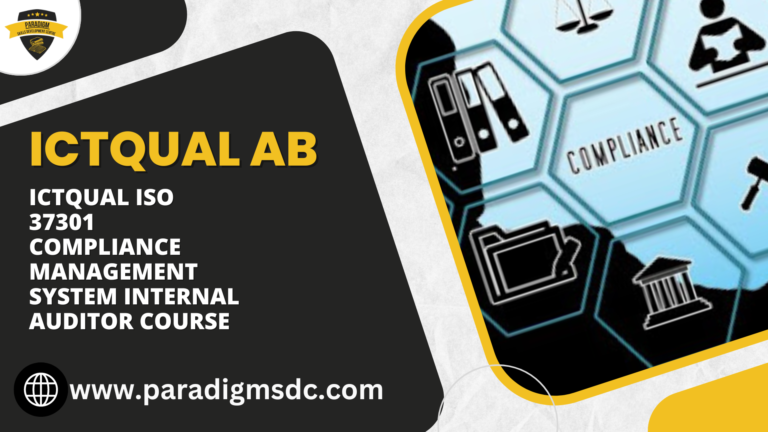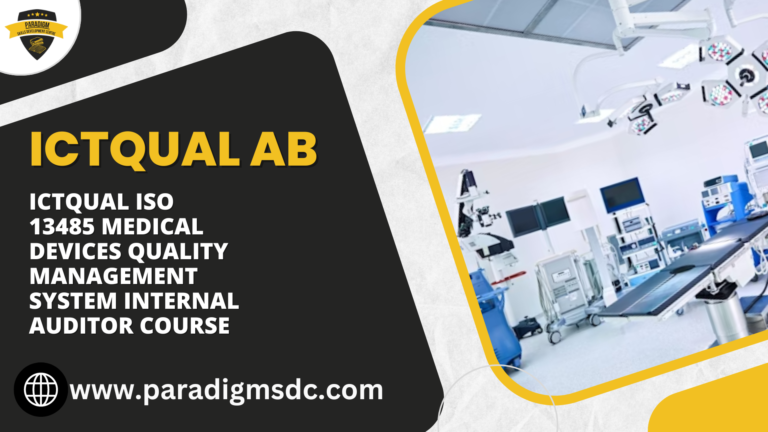The ICTQual Level 5 Diploma in Chemical Engineering is a comprehensive two-year program designed to provide students with the essential skills and knowledge required for a successful career in chemical engineering. With a total of 240 credits, this course offers a robust foundation for individuals looking to advance in this dynamic and ever-evolving field.
Chemical engineering is at the heart of industries like pharmaceuticals, energy, food processing, and materials manufacturing. This diploma equips students with the technical expertise, problem-solving skills, and innovative mindset needed to thrive in these sectors. The program covers key topics such as process engineering, thermodynamics, fluid mechanics, chemical reaction engineering, and safety management.
Applicants must have a minimum of high school education in science subjects, particularly chemistry, physics, and mathematics. Some programs may also require an entrance assessment or prior work experience in a related field.
The ICTQual Level 5 Diploma in Chemical Engineering offers a perfect blend of theory and practice, providing students with the tools they need to excel in the chemical engineering industry. With its two-year structure and 240 credits, this program is an excellent choice for aspiring engineers looking to make a meaningful impact in the field.
Study Units:
Year 1 (120 Credits)
Semester 1
- Introduction to Chemical Engineering Principles
- Engineering Mathematics and Statistics
- Material and Energy Balances
- Thermodynamics
- Chemistry for Engineers
- Fluid Mechanics
Semester 2
- Heat Transfer Processes
- Chemical Process Industries
- Mechanical Properties of Materials
- Laboratory Skills and Safety
- Environmental Science and Sustainability
- Technical Communication and Report Writing
Year 2 (120 Credits)
Semester 1
- Advanced Thermodynamics
- Advance Fluid Mechanics
- Process Control and Instrumentation
- Chemical Reaction Engineering
- Separation Processes
- Industrial Health and Safety Management
Semester 2
- Chemical Process Design and Simulation
- Advanced Separation Processes
- Energy Systems and Renewable Technologies
- Advance Chemical Reaction Engineering
- Industrial Project Management
- Research Project in Chemical Engineering
Learning Outcomes:
Here are the Learning Outcomes for each study unit in the ICTQual Level 5 Diploma in Chemical Engineering (240 Credits – Two Year):
Year 1 (120 Credits)
Semester 1
Introduction to Chemical Engineering Principles
- Understand the role of chemical engineering in industrial processes.
- Analyze basic principles such as mass transfer, fluid flow, and heat exchange.
- Apply fundamental engineering concepts to solve chemical process problems.
Engineering Mathematics and Statistics
- Utilize advanced mathematical techniques for engineering problem-solving.
- Interpret statistical data relevant to chemical processes.
- Develop mathematical models for process simulations.
Material and Energy Balances
- Perform mass and energy balance calculations for chemical systems.
- Evaluate process efficiency and resource utilization.
- Apply conservation principles to real-world chemical engineering scenarios.
Thermodynamics
- Explain thermodynamic principles related to energy and material transformations.
- Solve problems involving the first and second laws of thermodynamics.
- Analyze phase equilibrium and thermodynamic properties of substances.
Chemistry for Engineers
- Understand the chemical principles underpinning engineering processes.
- Analyze chemical reactions, stoichiometry, and kinetics.
- Evaluate the behavior of materials in various chemical environments.
Fluid Mechanics
- Explain fluid properties and their impact on process systems.
- Design and analyze fluid flow systems using Bernoulli’s equation and other principles.
- Solve engineering problems involving pumps, turbines, and pipe networks.
Semester 2
Heat Transfer Processes
- Understand conduction, convection, and radiation heat transfer mechanisms.
- Design and analyze heat exchangers for industrial applications.
- Evaluate thermal efficiency and optimize heat transfer systems.
Chemical Process Industries
- Analyze key chemical industries, including petrochemical, pharmaceutical, and food processing.
- Evaluate industrial processes from raw material to final product.
- Understand economic and environmental factors in chemical production.
Mechanical Properties of Materials
- Understand material behavior under stress, strain, and temperature variations.
- Evaluate materials for use in chemical engineering applications.
- Analyze failure modes and select appropriate materials for specific processes.
Laboratory Skills and Safety
- Develop practical laboratory skills for chemical analysis and engineering experiments.
- Follow safety protocols and risk assessments in laboratory environments.
- Accurately record, analyze, and interpret experimental data.
Environmental Science and Sustainability
- Understand environmental impacts of chemical engineering processes.
- Develop sustainable engineering solutions for waste management and energy efficiency.
- Analyze regulatory requirements for environmental protection.
Technical Communication and Report Writing
- Develop technical writing skills for clear and concise communication.
- Prepare comprehensive engineering reports and documentation.
- Present technical findings effectively to varied audiences.
Year 2 (120 Credits)
Semester 1
Advanced Thermodynamics
- Analyze advanced thermodynamic cycles and systems.
- Solve complex problems involving multi-phase and non-ideal systems.
- Apply thermodynamic principles to optimize industrial processes.
Advanced Fluid Mechanics
- Understand advanced concepts in fluid dynamics, including turbulence and compressible flow.
- Design and optimize fluid transport systems.
- Use computational tools to model fluid behavior in engineering systems.
Process Control and Instrumentation
- Understand process control principles, including feedback and feedforward systems.
- Design control strategies for industrial chemical processes.
- Use modern instrumentation and sensors for process monitoring.
Chemical Reaction Engineering
- Analyze reaction kinetics and reactor design.
- Optimize chemical reactors for efficiency and safety.
- Apply modeling techniques to scale up chemical reactions from lab to industry.
Separation Processes
- Understand principles of separation techniques such as distillation, filtration, and chromatography.
- Design and evaluate industrial separation systems.
- Optimize separation processes for cost and energy efficiency.
Industrial Health and Safety Management
- Analyze risks associated with chemical engineering processes.
- Develop safety management plans and emergency protocols.
- Ensure compliance with health and safety regulations in industrial environments.
Semester 2
Chemical Process Design and Simulation
- Use simulation tools to design and analyze chemical processes.
- Develop process flow diagrams and identify optimization opportunities.
- Evaluate the economic feasibility of chemical process designs.
Advanced Separation Processes
- Understand complex separation techniques, including membrane processes and crystallization.
- Design advanced systems for high-purity product requirements.
- Evaluate environmental impacts of separation technologies.
Energy Systems and Renewable Technologies
- Analyze energy systems and their applications in chemical engineering.
- Develop solutions using renewable energy technologies in process industries.
- Evaluate energy efficiency and sustainability in industrial processes.
Advanced Chemical Reaction Engineering
- Explore complex reaction mechanisms and multi-reaction systems.
- Optimize catalytic and non-catalytic reactions in industrial reactors.
- Apply computational tools to model reaction engineering systems.
Industrial Project Management
- Plan, execute, and monitor industrial engineering projects.
- Apply project management tools and techniques to chemical process industries.
- Ensure projects are completed on time, within scope, and on budget.
Research Project in Chemical Engineering
- Conduct independent research on a chemical engineering topic.
- Apply theoretical knowledge to practical problems through experiments or simulations.
- Present findings through detailed reports and presentations.







